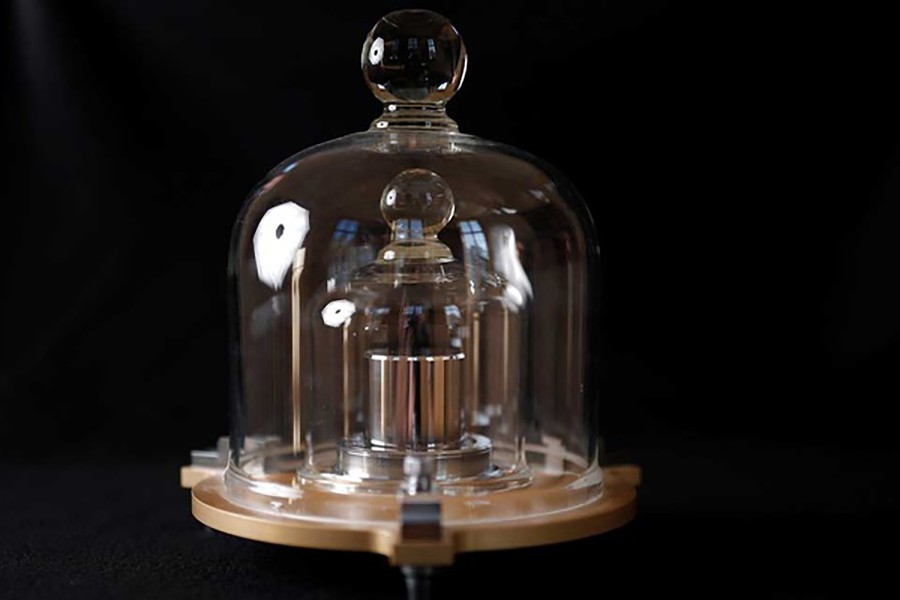
Published :
Updated :

Scientists have redefined the kilogram and three other standard units of measure at the General Conference on Weights and Measures recently.
Dozen nations voted at the conference the Palace of Versailles in Paris on Friday to overthrow Le Grand K and to redefine the ampere, for electrical current; the kelvin, for temperature; and the mole, which describes the amount of a chemical substance, reports BBC.
Since 1889, the units had been defined by the weight of a platinum-based ingot called "Le Grand K" which is locked away in a safe in Paris.
But some scientists, such as Perdi Williams at the National Physical Laboratory (NPL) in the UK, have expressed mixed feelings about the change.
"I haven't been on this project for too long but I feel a weird attachment to the kilogram," she said.
"I think it is such an exciting thing and this is a really big moment. So I'm a little bit sad about [the change]. But it is an important step forward and so the new system is going to work a lot better. It is also a really exciting time, and I can't wait for it to happen."

The General Conference on Weights and Measures
What are the advantages of the new system?
Every few decades, all the replica kilograms in the world had to be checked against Le Grand K.
The new system, now that it's been adopted, will allow anyone with a Kibble balance to check their weights anytime and anywhere, according to NPL's Dr Ian Robinson.
"It feels really good to be at this point. I feel it is the right decision. Once we've done this it will be stable for the foreseeable future," he said.
Why kill off the kilogram?
Le Grand K has been at the forefront of the international system of measuring weights since 1889. Several close replicas were made and distributed around the globe.
But the master kilogram and its copies were seen to change - ever so slightly - as they deteriorated.
In a world where accurate measurement is now critical in many areas, such as in drug development, nanotechnology and precision engineering - those responsible for maintaining the international system had no option but to move beyond Le Grand K to a more robust definition.
How wrong is Le Grand K?
The fluctuation is about 50 parts in a billion, less than the weight of a single eyelash. But although it is tiny, the change can have important consequences. Coming in is an electrical measurement which Dr Stuart Davidson, head of mass metrology at NPL, says is more stable, more accurate and more egalitarian.
"We know from comparing the kilogram in Paris with all the copies of the kilogram that are all around the world that there are discrepancies between them and Le Grand K itself," he said.
"This is not acceptable from a scientific point of view. So even though Le Grand K is fit for purpose at the moment, it won't be in 100 years' time."


 For all latest news, follow The Financial Express Google News channel.
For all latest news, follow The Financial Express Google News channel.